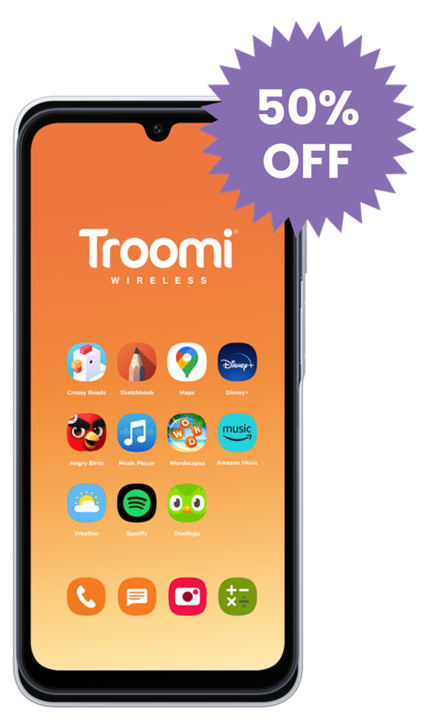Towards the end of last year, hordes of people from all over the world descended upon Reykjavík for a massive sporting event. Dressed to the nines in their jerseys, they looked ready to compete. What was the sport, you ask? Well, it wasn’t any sport you play on a field or court, but rather something you can play from your couch: video games.
Yep, you read that right. Back in October, our little Icelandic harbor city was full of professional gamers participating in the 2021 League of Legends World Championship. Teams from countries such as China and the United States went head to head in the multiplayer video game League of Legends to compete for the top spot—and the $2 million prize.
It might surprise you, but esports tournaments are just as popular as traditional sporting events, especially among kids and teens. So how do these tournaments work? Before we get into that, let’s answer one simple question: what are esports?
What Are Esports?
In a nutshell, esports (short for electronic sports) are competitive, professional-level video games. Players compete in online, multiplayer games for trophies, cash prizes, and international recognition. Depending on the game, players participate either individually or with a team. It might sound lowkey, but esports get pretty intense. Professional esport athletes (yes, they’re athletes) spend hours practicing and perfecting their game, just like football players and ballet dancers.
Esports tournaments are a massive part of the entertainment industry. The scene first took off in the late 2000s in countries like China and South Korea, but it soon spread to the United States and Europe. Studies show that the worldwide market revenue of esports competitions is upwards of $1 billion and that 474 million people worldwide regularly watch esport tournaments and competitions. To put that number into perspective, it’s more than 16% of the world’s population!
Through esports tournaments, kids and teens can even use their video game skills to join school teams and win college scholarships. How wild is that?
Most games featured in esports tournaments are multiplayer online battle arena (MOBA) games like League of Legends, first-person shooter games (FPS) like Overwatch, and traditional sports games like FIFA and NBA 2K. Some examples of the video games played at esports tournaments are:
- League of Legends
- Dota 2
- Mobile Legends: Bang Bang
- Super Smash Brothers
- Street Fighter
- Overwatch
- Pokemon
- Rocket League
- FIFA
- NBA 2K
- Fortnite
Most esports games are played on the computer or a video game console, but some, like Mobile Legends: Bang Bang, are mobile-based smartphone apps. While mobile games are a fun way to pass the time, they can also be addicting and detrimental to a child’s mental health; that’s why smartphones from Troomi Wireless help your child develop healthy tech habits. Click here to learn about KidSmartⓇ Apps: Troomi’s fun and stress-free alternative to addictive mobile games.
How Do Esports Tournaments Work?
Now that we know what esports are, how do esport tournaments and competitions work?
Picture your favorite sporting event. It could be a basketball arena stuffed with excited fans, or perhaps a crowded football stadium. Well, esport tournaments are the gamer’s version of athletic championships. Teams get together in a large, audience-filled arena to compete head-to-head in their video game of choice. Commentators analyze and discuss the game in real time, just as announcers at traditional sporting events do. The winner of the tournament usually walks away with a hefty cash prize, in addition to the recognition they get for winning an elite championship.
Not all tournaments are played the same way, but most follow a simple pattern. It starts with the group stage, where competitors are matched up based on their track record. The teams that do the best in each group then move on to bracket play. This works like any other bracket: two teams compete and the winner moves to the next round. Bracket play continues until only two teams remain. These teams then go head-to-head in a final match to determine who will walk away with the win.
What Are the Five Most Popular Tournaments?
It’s difficult to narrow it down to five specific tournaments, since there are many esports tournaments held all over the world all the time. However, the numbers don’t lie. According to Esports Insider, here are the five most viewed esports events of 2021:
- M2 World Championship. This Mobile Legends: Bang Bang competition was last held in Singapore and reached a peak viewership of 3.08 million people.
- M3 World Championship. Like the aforementioned M2 World Championship, the M3 World Championship was a Mobile Legends: Bang Bang tournament that reached 3.19 million people.
- PUBG Mobile Global Championship Season 0. PUBG is one of the most popular esports games, so it’s no surprise that the global championship reached 3.8 million viewers.
- League of Legends 2021 World Championship. League of Legends is often claimed to be the most popular esports game. This year, the aforementioned World Championship was held in Iceland and reached a shocking 4.01 million people.
- Free Fire World Series 2021 Singapore. The most viewed esports competition of 2021 was the worldwide Free Fire competition, with a staggering 5.41 million people watching at its peak. The winner of the tournament walked away with a cool $2 million. Not too shabby.
Where Can My Kids Watch Esports Tournaments?
Unfortunately, there’s no ESPN equivalent for esports. Until a similar program is developed, you’ll have to do some research to know how and when to watch esports. Most tournaments stream live on Twitch, but a quick Internet search should tell you all the specifics you need to know about how, when, and where your kids can watch their favorite esports competition.
Can My Child Compete in Esports Tournaments?
This answer may surprise you: they can!
Of course, don’t expect your kiddo to start competing in world-class championships right off the bat. To do that, they’ll need to practice pretty hard and work their way up through the ranks. Start small by helping them enter local competitions. As they continue to enter tournaments and gain more experience with the game, they may get invited to invitational competitions and open qualifiers. If they do well in these competitions, they may catch the eye of an esports team or organization. After that, the rest is history!
Video Games Aren’t All Bad
Video games tend to get a bad rap. Too much time spent on any screen may increase the risk of tech addiction, but when played in moderation, video games may help kids develop creative problem solving skills, hone hand-eye coordination, and strengthen social relationships.
As the popularity of esports tournaments increases, video games may even be your child’s pathway to becoming a professional athlete! Now there’s a sentence I never thought I would write.


